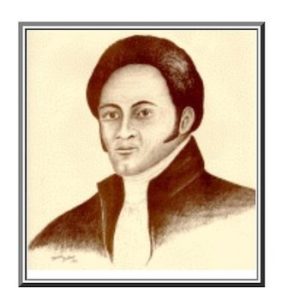
Richard Preston
*The birth of Richard Preston is celebrated on this date, c. 1791. He was a Black Canadian religious leader and abolitionist.
Richard Preston is believed to have been born into slavery in Virginia but gained an education and saved enough to buy his freedom in 1816. He went to Nova Scotia in search of his mother, who had escaped slavery in the War of 1812. She was one of the 2000 Africans who fled to the British after the Cochrane Proclamation and settled in Nova Scotia, where they became known as the War of 1812 Refugees.
Discovering his mother, whom he had not seen for many years, alive and free in Preston, Nova Scotia, he adopted the name of her community. Preston was "light-skinned" and "6'1" in height. He was never married. He was known for his gifted oratory and sense of humor. Baptist minister John Burton mentored Preston. He was trained as a minister in England.
He met many of the leading voices in the abolitionist movement that helped to get the Slavery Abolition Act passed by the British Parliament in 1833. When Preston returned to Nova Scotia, he became the president of the Abolitionist movement in Halifax. He established the Cornwallis Street Baptist Church, the African Abolition Society, and the African Baptist Association. He established a school for Black students and refurbished the Church of England school for black students in 1785.
Preston became one of the most important church and community leaders in Nova Scotia. He assisted in setting up 11 Baptist churches across the province. He died on July 16, 1861. Parks Canada designated him a Person of National Historic Significance in 2005 for his leadership in religion, community building, and contributions to the struggle against slavery. East Preston and North Preston, Nova Scotia, are often believed to be named in his honor, although these communities were named for him.